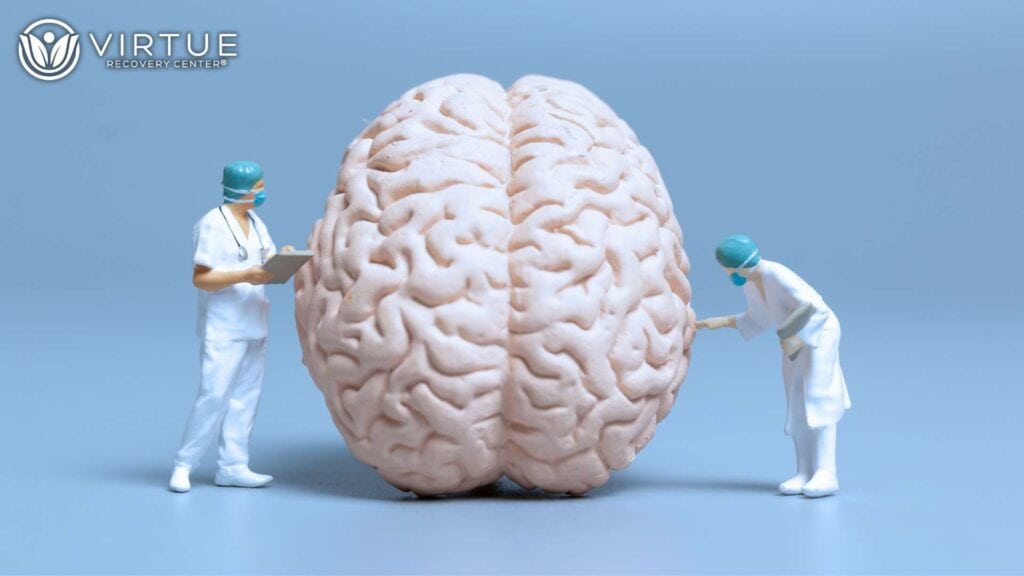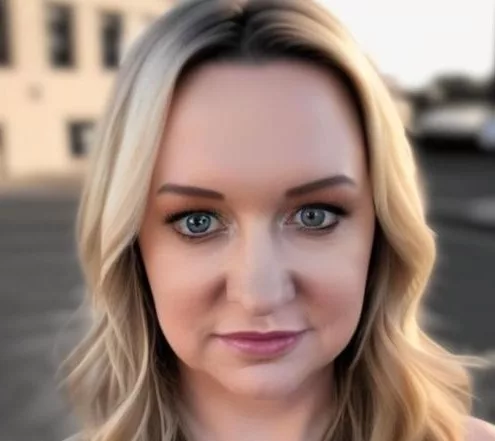
Table of Contents
Key Takeaways
- THC in cannabis affects brain areas linked to memory, emotions, and decision-making.
- Heavy cannabis use can lead to long-term issues with focus, learning, and mental health.
- Adolescents face higher risks because their brains are still developing.
- Cannabis use disorder is real and can cause withdrawal symptoms and emotional struggles.
- Professional treatment can help restore brain health and support lasting recovery.
Introduction
Today, cannabis use is more common than ever. Some people use it for medical reasons. Others use it just to relax or have fun. With laws changing across the country, many think marijuana is completely safe. But studies show a different side. Scientists have learned that using cannabis—especially often or at a young age—can have real effects on the brain. It can change how we think, feel, and make decisions. In this article, we’ll explain how cannabis affects brain function, who is most at risk, and how to get help if you or someone you love needs it.What Is Cannabis and How Does It Work in the Brain?
Cannabis is a plant made up of many natural chemicals called cannabinoids. The two most talked-about are:- THC (tetrahydrocannabinol): the part that makes people feel “high.”
- CBD (cannabidiol): another part that doesn’t cause a high but may have calming effects.
Short-Term Effects of Cannabis Use on Brain Function
Right after cannabis use, people often feel different. Some short-term effects include:- Slower reaction time (making driving dangerous)
- Trouble remembering things
- Changes in mood (feeling very happy or very anxious)
- Making poor decisions (like risky behavior)
Long-Term Effects of Heavy Cannabis Use on the Brain
Heavy cannabis users—people who use it regularly or in large amounts—are more likely to have lasting brain changes. Some long-term effects include:- Memory problems: Trouble learning new information.
- Lower IQ: Some studies show a drop in IQ for people who start using young and use heavily.
- Increased risk of mental health issues: Problems like depression, anxiety, or even psychosis.
Cannabis and the Developing Brain: Why Teens Are at Higher Risk
The brain keeps growing and changing until about age 25. This time is very important for building strong thinking and emotional skills. When teens and young adults use cannabis, it can:- Change brain structure, making some areas smaller or less active.
- Slow down cognitive development, affecting memory, planning, and emotional control.
- Increase the risk of cannabis use disorder later in life.
Brain Imaging Studies: What We See in Cannabis Users
Scientists have used brain imaging (like MRI scans) to study people who use cannabis. What they found is clear. Compared to people who don’t use cannabis, users often have:- Less activity in parts of the brain that control focus and memory.
- Changes in brain structure, especially in areas related to motivation and reward.
- Weaker connections between brain regions that help with thinking and planning.
Medical Marijuana and Brain Health: What We Know
Some people use medical marijuana to treat health conditions like epilepsy, chronic pain, or nausea from cancer treatment. In these cases, medical cannabis may help improve quality of life. But even medical marijuana can affect the brain, especially if:- The dose of THC is high.
- The user is very young.
- The use is long-term without medical supervision.
The Risk of Cannabis Use Disorder
Cannabis use disorder (CUD) happens when a person struggles to control their cannabis use, even when it causes problems. Signs of CUD include:- Craving cannabis
- Needing more cannabis to feel the same effects
- Failing to stop or cut back
- Continuing to use even when it hurts school, work, or relationships
- Irritability
- Trouble sleeping
- Decreased appetite
- Anxiety or restlessness
When to Seek Help: Supporting Brain Health and Recovery
If you or someone you know shows signs like:- Memory problems
- Mood swings
- Trouble concentrating
- Strong cravings for cannabis
- Using even when it causes trouble
- Building healthy coping skills
- Improving mental health
- Healing brain function over time
- Preventing relapse
Conclusion
Cannabis may seem harmless because it’s natural and legal in many places. But the truth is, cannabis use can affect brain function—especially with heavy use or when started early in life. Memory, focus, emotions, and decision-making can all suffer. Over time, heavy cannabis use may lead to cannabis use disorder and real mental health struggles. If you or someone you care about is struggling with cannabis use, you’re not alone—and there is hope. Call Virtue Recovery Center at 866-461-3339 today to start your journey toward recovery and better brain health. Healing is possible, and we’re here to help.FAQs About Health Effects of Cannabis on The Brain
How does cannabis use affect cognitive function in adults?
The use of cannabis, particularly products high in THC, can impair cognitive function, affecting memory, attention, and decision-making abilities. Long-term cannabis use may lead to more pronounced cognitive deficits, especially if initiated during adolescence.What are the long-term effects of cannabis use on brain health?
Long-term cannabis use has been associated with changes in brain structure and function, including alterations in areas responsible for memory and learning. Evidence suggests that heavy cannabis users may experience persistent cognitive impairments even after cessation.Can cannabis withdrawal symptoms impact brain function?
Yes, cannabis withdrawal symptoms can include anxiety, irritability, and sleep disturbances, which may indirectly affect brain function and cognitive performance during the withdrawal period.What evidence suggests that cannabis exposure affects brain development in adolescents?
Research indicates that cannabis use during adolescence can interfere with brain development, leading to alterations in brain structure and function. This can result in long-term cognitive deficits and an increased risk of mental health conditions.How does the impact of cannabis vary across different age groups?
The impact of cannabis varies significantly with age. Adolescents may experience more severe effects on cognitive development and mental health compared to adults. Long-term cannabis use in older adults can also lead to memory problems and other cognitive issues.What are the potential effects of THC on brain activity?
THC, the psychoactive component of the cannabis plant, can alter brain activity by affecting neurotransmitter release. This modulation can lead to changes in mood, perception, and cognitive performance, depending on the dose and frequency of use.Are there medical uses of cannabis that can positively affect brain function?
Some cannabis products have been shown to have therapeutic effects, such as alleviating symptoms of certain neurological disorders. However, the impact on brain function can vary widely, and further research is needed to establish the benefits versus risks of cannabis use in medical contexts.What are the associations between adolescent cannabis use and mental health conditions?
Adolescent cannabis use has been linked to an increased risk of developing mental health conditions, such as depression and anxiety. The use of cannabis during critical periods of brain development may exacerbate these issues.How do heavy cannabis users differ from occasional users in terms of cognitive effects?
Heavy cannabis users often experience more significant cognitive impairments compared to occasional users. The long-term effects of cannabis use in heavy users can include persistent memory deficits and difficulties with attention and learning.How Does Daily Marijuana Use Impact Brain Function Compared to Alcohol Consumption?
Research indicates that daily marijuana use surpasses daily drinking in its impact on brain function. While both substances can impair cognitive abilities, marijuana may have unique effects on memory and decision-making. Understanding these differences is crucial for informed choices regarding consumption and potential long-term cognitive health.
Resources
https://www.cdc.gov/cannabis/health-effects/brain-health.html https://pmc.ncbi.nlm.nih.gov/articles/PMC7027431/ https://www.apa.org/monitor/2023/06/marijuana-effects-brainAre You Covered For Treatment?
At Virtue Recovery Center, we understand the importance of accessible care. That’s why we’re in-network with numerous private insurance companies, ensuring that your journey to recovery is supported from the start. Let us help you quickly and easily verify your insurance coverage. Begin your path to healing today.
- About the Author
- Latest Posts
Nicki Lugo, CPC, LAC, LCADC, CCTS( Clinical Director )
Nicki Lugo is currently employed as Clinical Director at Virtue Recovery Center in Las Vegas. Nicki is a licensed clinical professional counselor (CPC) in the state of Nevada and a licensed associate counselor (LAC) in the state of Arizona. She is also a licensed clinical alcohol and drug counselor (LCADC) in Nevada. Additionally, Nicki has specialized training in treating trauma and is a certified clinical trauma specialist (CCTS).
Nicki has earned a Master of Science degree in Psychology with an emphasis in Behavioral Health from the University of Phoenix and a Master of Science in Professional Counseling from Grand Canyon University. Currently, Nicki is pursuing a Doctor of Philosophy (PhD) in Counseling Education and Supervision at Grand Canyon University. Nicki’s research interests include the use of Positive Psychology interventions with dual diagnosis clients. Nicki hopes to contribute to the body of knowledge in treating substance use disorders.
Nicki’s long-term career goals include advancing in leadership roles within Virtue Recovery Center which is a quickly growing substance use disorder treatment facility. She hopes that one day her research and advocacy will help to save the lives of those who have been affected by substance use. She likes to say that advocacy is her passion and leadership is her superpower.
Key Takeaways Regular exercise reduces cravings and withdrawal symptoms. Physical …
Key Takeaways Veterans Day began as Armistice Day in 1918 …
Key Takeaways Proper nutrition plays a vital role in addiction …
Key Takeaways Long-term sobriety is achievable with evidence-based addiction treatment …
Key Takeaways Mindfulness and meditation improve focus, emotional balance, and …
Key Takeaways Family involvement greatly improves the success of addiction …


























